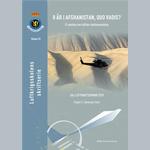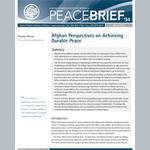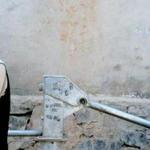"My Justice": The new role of warlords in Afghanistan
<div class="event-icon"></div> <span>Save this event in my Outlook calendar</span>
<div class="event-icon"></div> <span>Save this event in my Google Calendar</span>
International efforts to strengthen the formal justice sector in Afghanistan have largely failed. Attempts to rebuild the national army and the police have not provided the security that was expected. The international support has thus shifted from the Afghan Government to the support of informal justice mechanisms; security has been ”bought” from local defence groups and warlords. With renewed strength and justice in their hands, warlords and local defence groups use their military and political influence to enforce “their justice” over that of the State and the citizens, often to protect their own illegal activities.
Mohammad Akbar Sarwari has taken part in several studies of the informal justice sector and will present his research drawing on case studies from three Afghan provinces: Kunduz, Nangarhar and Uruzgan.
Publications

When more is less. The international project in Afghanistan

Afghanistan: Political and cultural complexity

Afghan perspectives on achieving durable peace
Projects

Protection of Civilians: From Principle to Practice
